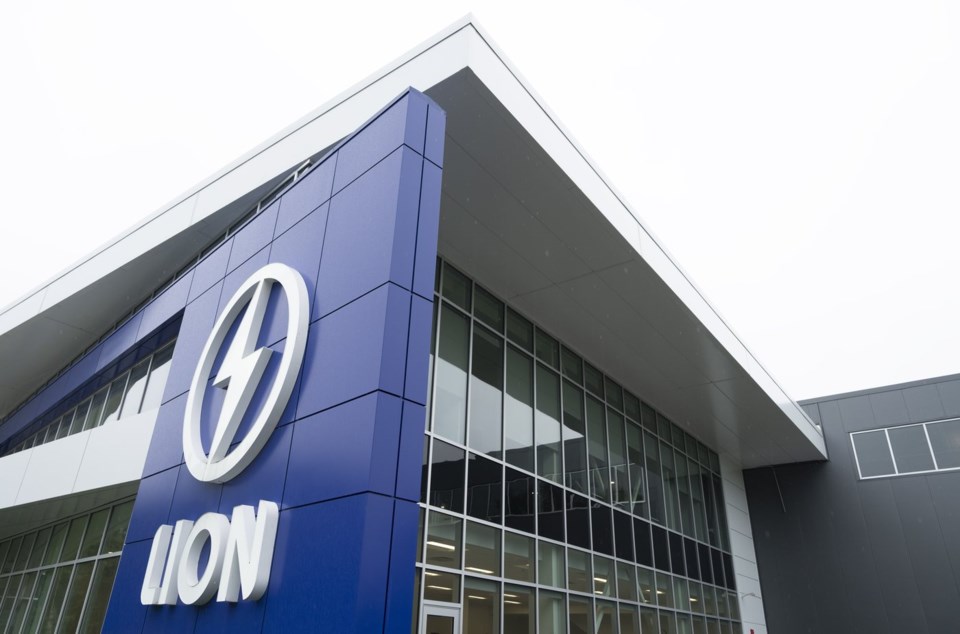MONTREAL — Quebec vehicle-maker Lion Electric will no longer honour warranties on school buses and trucks sold in the United States, leaving clients south of the border in the lurch.
After seeking protection from its creditors in December, the struggling manufacturer was acquired by a group of Quebec investors in May with a plan to focus exclusively on electric school buses assembled and sold in the province. The company has retained its manufacturing plant in St-Jérôme, Que.
Earlier this month, the court-appointed monitor overseeing Lion's restructuring sent a letter to U.S. clients informing them that their warranties and purchase orders have been voided.
"As part of the transaction, most of the Lion Group assets, liabilities, and rights were transferred to a corporation that will be eventually wound-up by way of bankruptcy proceedings," reads the letter dated July 15.
"For further clarification, all warranties and purchase orders in the United States were transferred into the new corporation to be bankrupted. All warranties and purchase orders that you could have with the Lion Group are therefore not being legally assumed by the company post transaction."
Lion Electric did not respond to a request for comment. Earlier this year, a spokesperson told The Canadian Press the company had nearly 2,000 buses and more than 200 trucks on the road in North America. According to a press release in May announcing its acquisition by the Quebec investor group, the company said approximately 1,000 of those buses are operating in Quebec, and those warranties will be honoured.
Lion has also sold roughly 100 buses to the government of Prince Edward Island, and has other Canadian clients outside Quebec. Valérie Tremblay of the Canadian Electric School Bus Alliance said that based on conversations she's had with school bus operators, it appears those warranties have also been voided.
Richard Decman, superintendent of a rural Illinois school district south of Chicago, said he's trying to find other vendors to maintain the district's 25 Lion school buses, which make up half its fleet. "We are very disappointed about the news of Lion Electric not being able to fulfill their promises regarding warranties and services to their buses," he said in an email. "We still need to transport almost 2,000 students a day to school and need our electric buses to be working."
Andrew Dolloff, superintendent of the Yarmouth School Department in Maine, said his district is now considering whether to join legal action against Lion Electric, find another company to service its buses or simply get rid of them. "It will take us a while to figure out our next steps," he said in an email.
Dolloff told The Canadian Press in January that his district bought two Lion Electric buses in 2023 using federal grant money, but they had such frequent problems that they had rarely been in service.
In California, the Los Angeles Unified School District said it's working with other vendors who have "qualified technicians and engineering staff with Lion-specific experience" to provide ongoing maintenance of its 28 Lion buses. "Looking ahead, we are working to include long-term maintenance and support requirements for future electric school buses contracts," a spokesperson said in an email statement.
Carolina Chacon, coalition manager with the U.S.-based Alliance for Electric School Buses, said her organization has been "turning over every stone" to support school districts with Lion buses.
"I think Lion's reputation, unfortunately, is the biggest loser here," she said in an interview. "If the brand continues and tries to reenter the American market, I think there's going to be some distrust there of the company."
But another group has suggested all is not lost for Lion's U.S. clients. The clean-energy non-profit CALSTART, which provides information and resources related to electric school buses, sent an email to its members earlier this month saying it had held conversations with the Quebec-based manufacturer.
"Lion expressed their interest in providing future support to their customers outside of Quebec and has the intention to relaunch service in the U.S. beginning with key markets such as California," reads the email. "To provide this support, Lion is actively working to reestablish service locations and develop service packages that can be supported by their reduced workforce and resources."
The email encourages operators to continue submitting service tickets to Lion. "Service requests continue to be reviewed and processed by the Lion team on a case-by-case basis," it says. "In the coming months, Lion hopes to craft service plans, develop training, and work with service partners to reactivate and support those warranties that were voided as a result of the transition to new ownership."
CALSTART was unavailable for comment.
The group of investors that bought Lion Electric includes Montreal real-estate magnate Vincent Chiara and Pierre Wilkie, who has twice sat on Lion's board of directors. "The acquisition keeps the company rooted locally and prevents the takeover of a strategic industrial asset by foreign interests," the company said in the May news release.
A previous offer from the investor group fell through after the Quebec government refused in April to inject more public funds into the company. Quebec Premier François Legault has said the province stood to lose about $140 million on its investment in Lion.
However, the provincial government later confirmed it would renew a subsidy program for electric school buses, which now offers subsidies of $240,000 for each bus purchase.
This report by The Canadian Press was first published July 31, 2025.
Maura Forrest, The Canadian Press



